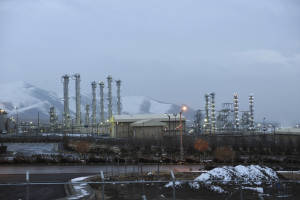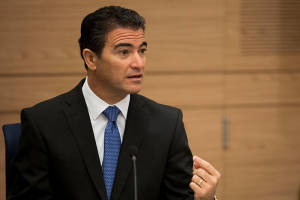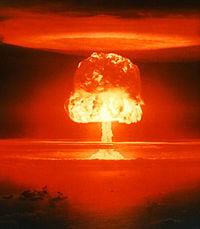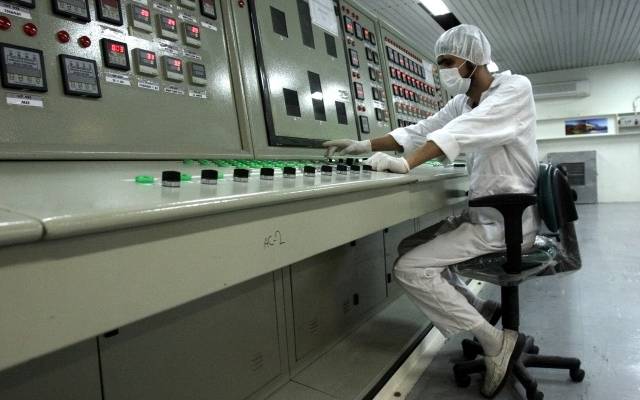
Iran’s heavy water nuclear facility Arak. (AP/ISNA, Hamid Foroutan)
Along with its many flaws and loopholes, the deal with Iran has the West protecting its nuclear development facilities from sabotage by foreign entities working to undermine the Islamic Republic’s dangerous terror agenda.
Israel has repeatedly warned that the deal with Iran is not solid, is full of loopholes and will eventually lead to a nuclear Iran.
One of the agreement’s sections exemplifies the exceeding concessions that the Obama administration has made to the Islamic Republic regarding its nuclear program.
According to Article 10 on page 142, which relates to “nuclear security,” the West is “prepared to cooperate with Iran on the implementation of nuclear security guidelines and best practices.” Cooperation on securing Iran’s nuclear program includes “cooperation in the form of training courses and workshops to strengthen Iran’s ability to prevent, protect and respond to nuclear security threats to nuclear facilities and systems as well as to enable effective and sustainable nuclear security and physical protection systems” and “cooperation through training and workshops to strengthen Iran’s ability to protect against, and respond to nuclear security threats, including sabotage, as well as to enable effective and sustainable nuclear security and physical protection systems.”
This means the West will work with Iran to defend its nuclear program, including from “sabotage,” which could refer to foreign entities working to undermine Iran’s nuclear development through various methods, including cyber-attacks and espionage.
The clause could pertain to Iran’s civilian nuclear program, although Iran claims that its entire program is for civilian use. As such, the clause seems open to interpretation.
An Israeli official told Israel Hayom that the clause, which reportedly was added at the last minute and does not appear in the interim agreement, is “incomprehensible.”
“The US needs to defend Iran’s progression towards a nuclear bomb because of the excuse that its program is meant for civilian uses?” he asked.
Many Problematic Elements in the Deal
Briefing the government on the main points of the nuclear agreement on Sunday, National Security Council (NSC) Chairman Yossi Cohen pointed to the many flaws in the accord.

Yossi Cohen, PM Netanyahu’s national security advisor. (Noam Revkin Fenton/Flash90)
He noted that the preservation of Iran’s nuclear capabilities has been made possible as a result of the agreement, including the enrichment of uranium and the maintaining of Iran’s underground nuclear installations, such as the one at Fordo.
This is despite assurances by the major global powers that such activity would not be possible under the final agreement.
The go-ahead given to Iran to continue research and development of its advanced centrifuges will significantly reduce the break-out time that Iran would need to produce and arm itself with nuclear weapons, Cohen underscored.
He emphasized that even if Iran honors the agreement, it will still have a 10-15 year break-out time for dozens of nuclear bombs, as the restrictions on its nuclear program would be lifted after this period of time. If Iran violates the agreement, it would be able to produce individual bombs earlier.
Cohen said that the Islamic Republic has not given up on its nuclear program, adding that with the hundreds of billions of dollars that will now flow into its coffers as a result of the deal, Iran will step up the terrorism that it spreads in the region and around the world.
By: Max Gelber, United with Israel

Sign the Petition to Stop a Nuclear Iran
The US Congress must ensure that sanctions against Iran remain in force until the nuclear threat is completely eliminated.
I strongly oppose easing sanctions before the nuclear threat from Iran has been eliminated. Allowing Iran to enrich uranium without being subject to 'anytime, anywhere' inspections is extremely dangerous and unacceptable. Iran's nuclear program must be stopped.
See our Privacy Policy
